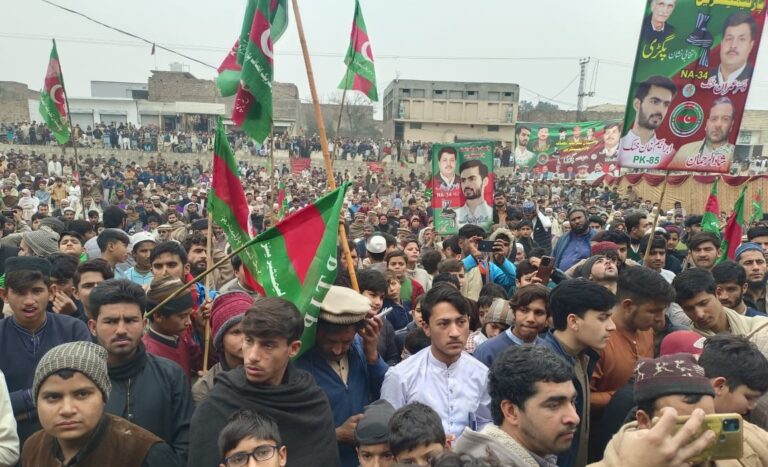As the political landscape of Khyber Pakhtunkhwa (KP) province in Pakistan becomes a battleground for the upcoming elections on February 8, the influence of dynastic politics remains a prominent feature. Despite the emergence of the Pakistan Tehreek-e-Insaf (PTI) in 2013, which initially aimed to break away from traditional family-centric politics, familiar names and family ties continue to dominate the political scene.
Despite the initial efforts of PTI to introduce new faces without political backgrounds, dynastic politics persists in KP.
Pervez Khattak, the head of Pakistan Tehreek-e-Insaf-Parliamentarians (PTI-P), and his sons are participating in the elections. Pervez Khattak himself is also contesting for NA-33 and PK-87 and PK-88 on his newly founded political party ticket. His son-in-law Dr Imran Khattak will also contest for NA-34 and PK-89 on February 8 elections.
Pervez Khattak’s brother Liaqat Khattak will contest the elections on a Jamiat Ulema-e-Islam-Fazl (JUI-F) ticket from PK-87. Similarly, Liaqat Khattak’s son Ahad Khattak will go up against Pervez Khattak for PK-88. The other strong candidates are Ikhtiar Wali Khan (PML-N), Awami National Party’s (ANP) and Jamshed Khan In Swabi, former MNA of PTI Usman Khan Tarakai will contest on PPP ticket against his nephew PTI candidate Shahram Khan Tarakai for NA-20.
The province is witnessing family rivalries within political dynasties, showcasing the persistence of familial influence despite efforts to introduce fresh faces.
In Chitral district, two brothers, Shehzada Iftikharuddin and Shehzada Pervez, are contesting from different political parties, exemplifying the enduring presence of familial ties in political ambitions.
As the election day approaches, the political fervor in Khyber Pakhtunkhwa intensifies, and candidates engage with large crowds, seeking maximum support. The dichotomy between the rhetoric of change and the enduring influence of political dynasties raises questions about the evolution of the political landscape in the region. While PTI aimed to break the mold, the continued presence of familiar names competing against each other within families underscores the complex dynamics of political evolution in Khyber Pakhtunkhwa.


